Welcome to Around the World! This week we feature an analysis of Ukraine's tough choices ahead, the Gaza 'Time Bomb', and more!
 | The World in 2050: Talent Mobility and the Future of Jobs There is no question that the world is facing an employment crisis. Almost 200 million people around the world are unemployed. So why can't companies find people to fill their open positions? Join Diplomatic Courier, STEMconnector, and the Cumberland Center in our high-level discussion, "Talent Mobility and the Future of Jobs", as we look to the year 2050. Space is limited -- request your invitation, or purchase a table before space fills up! |
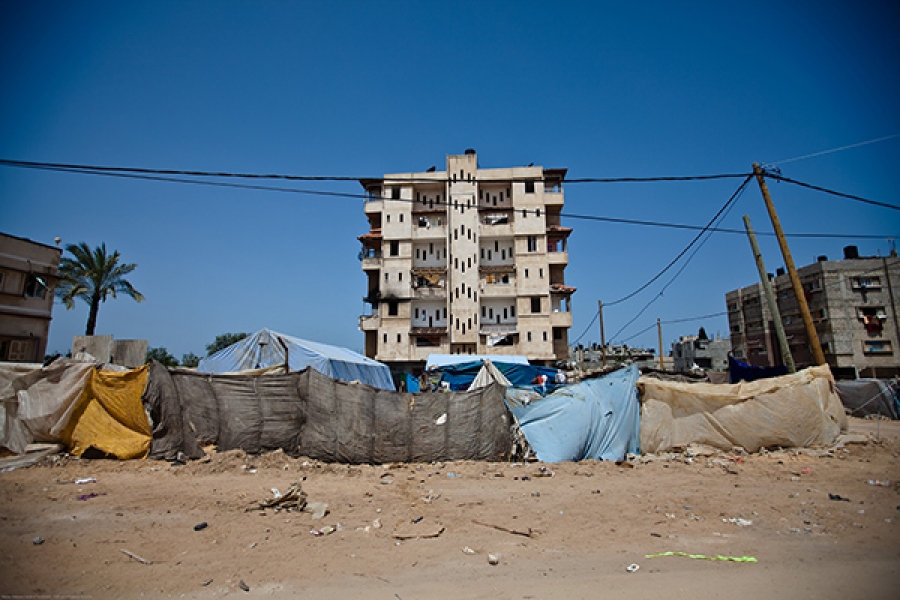 | The Gaza ‘Time Bomb’: An Impending Urban Crisis Residents of the Gaza Strip find themselves staring at a seemingly infinite abyss. They seem to be both destined and doomed to inhabit an eventually fruitless life--and they have become an immensely frustrated people disillusioned by those they have chosen to be ruled by. Read more here, here. |
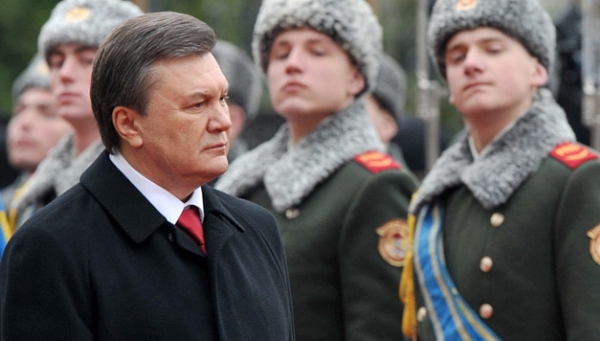 | Protestors in Kiev are furious about President Viktor Yanukovych's decision to halt discussions over Ukraine's inclusion in a European Union trade agreement. Russia's pressure on the nation to join a former Soviet nations trade union seems to be somewhat effective, as Ukrainians' divided loyalties pull the country in opposite directions. Read more about it here. |
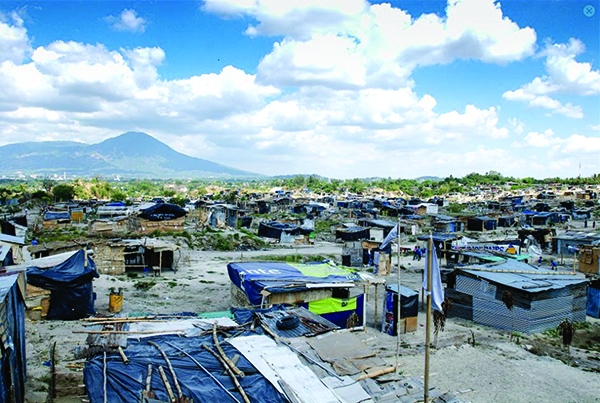 | A Tale of Two Cities: Latin America’s Housing Deficit While slums continue to grow in size and crisis, Latin America’s middle and high-end real estate market has been going through a five-year boom. Rapid urbanization in Latin America has spurred economic opportunity, but also increasing levels of income inequality. Read more about it here. |
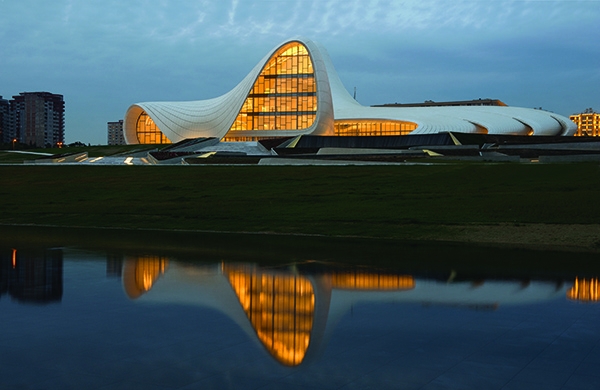 | Baku: A City of Contrasts and Contradictions Baku's transformation is a process driven by unfettered industrial exploitation, soaring population growth--as well as the Azerbaijani elite’s self-indulgence, greed, and rampant systemic corruption. Read more about it here. |
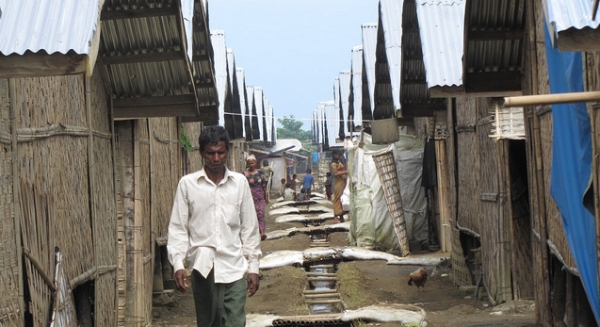 | Democracy as a Road Map to Peace in Burma When ceasefires had been agreed upon in the past, localized violence against Burma's Rohingya Muslims and Kachin rebels continued uninterrupted. Many of these incidents have occurred with the tacit support of the Burmese authorities due to the country's weak rule of law. Read more about it here. |
Around the Web
Thailand's embattled Prime Minister Yingluck Shinawatra has dissolved parliament in the face of large scale protests, and elections are tentatively scheduled for February 2nd, pending approval by the election commission. "At this stage, when there are many people opposed to the government from many groups, the best way is to give back the power to the Thai people and hold an election. So the Thai people will decide," the Prime Minister said in a televised address aimed at ending the country's political crisis and the week-long demonstrations aimed at bringing down the government. However, the crisis may be far from over: the pro-establishment Democrat Party is refusing to take part in the elections, saying they cannot and will not work with PM Yingluck's ruling Puea Thai Party.
The World Trade Organization has approved a global trade deal at its meeting in Bali, Indonesia -- the first such agreement since the organization was founded in 1995. Experts estimate that the deal will add $1 trillion to the global economy. U.S. Trade Representative Michael Froman told the Wall Street Journal, "For a small package, this is actually a big deal. I think it demonstrates that the WTO can work and hopefully will lead to other, maybe even bigger deals going forward."
This Week in History
1945: The U.S. Senate approved United States participation in the United Nations.
1984: More than 4000 people died after a cloud of gas escaped from a pesticide plant operated by a Union Carbide subsidiary in Bhopal, India. Of the over 500,000 people exposed, an estimated 16,000 people died from complications in the weeks following. It is considered the world's worst industrial disaster.


a global affairs media network
Around the World!

December 9, 2013
Welcome to Around the World! This week we feature an analysis of Ukraine's tough choices ahead, the Gaza 'Time Bomb', and more!
 | The World in 2050: Talent Mobility and the Future of Jobs There is no question that the world is facing an employment crisis. Almost 200 million people around the world are unemployed. So why can't companies find people to fill their open positions? Join Diplomatic Courier, STEMconnector, and the Cumberland Center in our high-level discussion, "Talent Mobility and the Future of Jobs", as we look to the year 2050. Space is limited -- request your invitation, or purchase a table before space fills up! |
 | The Gaza ‘Time Bomb’: An Impending Urban Crisis Residents of the Gaza Strip find themselves staring at a seemingly infinite abyss. They seem to be both destined and doomed to inhabit an eventually fruitless life--and they have become an immensely frustrated people disillusioned by those they have chosen to be ruled by. Read more here, here. |
 | Protestors in Kiev are furious about President Viktor Yanukovych's decision to halt discussions over Ukraine's inclusion in a European Union trade agreement. Russia's pressure on the nation to join a former Soviet nations trade union seems to be somewhat effective, as Ukrainians' divided loyalties pull the country in opposite directions. Read more about it here. |
 | A Tale of Two Cities: Latin America’s Housing Deficit While slums continue to grow in size and crisis, Latin America’s middle and high-end real estate market has been going through a five-year boom. Rapid urbanization in Latin America has spurred economic opportunity, but also increasing levels of income inequality. Read more about it here. |
 | Baku: A City of Contrasts and Contradictions Baku's transformation is a process driven by unfettered industrial exploitation, soaring population growth--as well as the Azerbaijani elite’s self-indulgence, greed, and rampant systemic corruption. Read more about it here. |
 | Democracy as a Road Map to Peace in Burma When ceasefires had been agreed upon in the past, localized violence against Burma's Rohingya Muslims and Kachin rebels continued uninterrupted. Many of these incidents have occurred with the tacit support of the Burmese authorities due to the country's weak rule of law. Read more about it here. |
Around the Web
Thailand's embattled Prime Minister Yingluck Shinawatra has dissolved parliament in the face of large scale protests, and elections are tentatively scheduled for February 2nd, pending approval by the election commission. "At this stage, when there are many people opposed to the government from many groups, the best way is to give back the power to the Thai people and hold an election. So the Thai people will decide," the Prime Minister said in a televised address aimed at ending the country's political crisis and the week-long demonstrations aimed at bringing down the government. However, the crisis may be far from over: the pro-establishment Democrat Party is refusing to take part in the elections, saying they cannot and will not work with PM Yingluck's ruling Puea Thai Party.
The World Trade Organization has approved a global trade deal at its meeting in Bali, Indonesia -- the first such agreement since the organization was founded in 1995. Experts estimate that the deal will add $1 trillion to the global economy. U.S. Trade Representative Michael Froman told the Wall Street Journal, "For a small package, this is actually a big deal. I think it demonstrates that the WTO can work and hopefully will lead to other, maybe even bigger deals going forward."
This Week in History
1945: The U.S. Senate approved United States participation in the United Nations.
1984: More than 4000 people died after a cloud of gas escaped from a pesticide plant operated by a Union Carbide subsidiary in Bhopal, India. Of the over 500,000 people exposed, an estimated 16,000 people died from complications in the weeks following. It is considered the world's worst industrial disaster.


